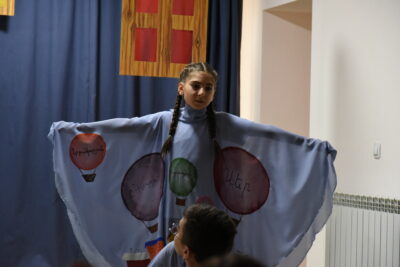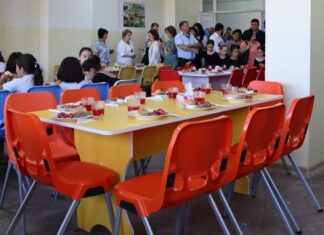By Aram Arkun
Mirror-Spectator Staff
BOSTON — The Armenian Business Network (ABN) sponsored a networking event with a presentation by Dr. Vardan Urutyan on winemaking and agribusiness education in Armenia on June 9 at the Kingston Grille and Bar (KGB) in downtown Boston. The event also included presentations from two organizations fundraising for aid to Armenia and Artsakh – the Tekeyan Cultural Association of the US and Canada (TCA), and the Memory Dignity Justice Association. As many as 120 people were present.
Karina Demurchyan, a member of the ABN executive council, served as master of ceremonies in the lively, crowded environment. After briefly speaking about ABN, she introduced this writer, Aram Arkun, TCA executive director, who pointed out that Tekeyan’s new program is small and transparent. It sends aid directly to victims of the recent fighting in Artsakh and Armenia, including wounded soldiers and the families of soldiers killed during the fighting, through its representative in Yerevan, and it obtains receipts. It will report on the distributions, which are now beginning. It does not charge any administrative costs, which the organization itself absorbs (see the TCA-Boston Facebook site or call 617 924-4455).
Manoog Kaprielian then spoke about the Memory Dignity Justice Association (MDJA), which strives to achieve the three goals embedded in its name concerning the violence against Armenians in Azerbaijan from 1988 to 1990. One of its members, Eduard Fandunyan, recently donated an ambulance and a bus for people with physical disabilities, to Artaskh. The Association is raising funds as well as collecting certain items necessary there such as medical supplies or clothing as donations. He said that MDJA will post details for donation drop-off arrangements and financial contributions on its Facebook page. Interested parties can also contact Garen Bagdasarian (garen1562@gmail.com, tel. 401 569-7305). The shipment is expected to be ready at the end of this June.
Representatives of the government of the Republic of Mountainous Karabagh as well as the association’s local contacts will make the final delivery of the shipment. Donations and delivery will be fully transparent and reported.







